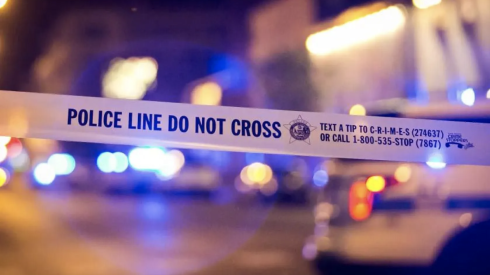Former Legislative Inspector General Julie Porter on Thursday planned to testify in front of a newly formed ethics commission that legislators quashed — and hid from the public — an investigation into another sitting lawmaker, which Porter said involved “serious wrongdoing.”
Porter shared her prepared testimony with reporters ahead of the meeting with the Joint Commission on Ethics and Lobbying Reform, but she never got the chance to publicly discuss the thwarted investigation. Commission members — themselves state legislators — did not ask her or others testifying to read their prepared statements, although the legislators promised to enter them into the record and publish them all on the panel’s website.
That meant Porter was not questioned about the past investigation that members of the Legislative Ethics Commission — a separate body that handles complaints against state lawmakers — effectively made sure went nowhere.
Porter, who was appointed as a temporary inspector general in November 2017, was unsure why she wasn’t asked to read the testimony.
“I don’t know if all the legislators had the opportunity to read it before asking questions today,” Porter told a reporter after the hearing.
In the more than two hours she spent on a panel with two other former inspectors general, Porter did get a chance to tell the commission that lawmakers should not be policing themselves when it comes to ethics.
She argued legislators have “the power to kill” investigations. In the statement she submitted to the commission, Porter wrote that the Legislative Ethics Commission could dismiss a complaint as “insufficient simply because they regard it as politically embarrassing.”
“That is precisely the system we have now in Illinois: the fox is guarding the henhouse,” Porter wrote in her remarks.
It’s not the first time Porter has publicly criticized the way the Illinois General Assembly handles investigations. Last March, Porter penned an op-ed calling the system of investigating ethical complaints “broken” — and she warned another complaint against a lawmaker wasn’t made public.
The quashed investigation in Porter’s prepared remarks involved a pending case she noticed when she filed her last report in late February 2019, which she called “unusual.” Porter wrote that she requested the Illinois attorney general file a formal complaint against the commission about that case.
Porter wrote she later learned the commission “did not agree to publish” a founded case, which she believed to be the one she took to the attorney general.
“What happened to that matter? I cannot tell you, both because I left office while it was still pending and because of my confidentiality obligations,” Porter said.
“Because I am bound to confidentiality, I cannot share with you what this investigation was or detail for you the many hours spent to get to the bottom of what I concluded was serious wrongdoing, warranting a founded summary report and even a formal complaint brought by the Attorney General,” Porter wrote in her testimony. “But my report and the Attorney General’s complaint should not be secret. They remain so only because the Legislative Ethics Commission quashed them so that the public could not see what the supposedly independent Inspector General determined to be wrongdoing by a sitting legislator.”
Porter was one of three past or current legislative inspectors general to testify in front of the commission Thursday. All three agreed that the current policy — which gives eight legislators sitting on the Legislative Ethics Commission power over the legislative inspector general’s investigations — must change.
“If I have to go to eight legislators, over whom I have jurisdiction to investigate, to ask for permission to open an investigation, how independent am I,” said current Legislative Inspector General Carol Pope.
The current policy now means that the legislative inspector general must ask the eight-member commission for permission to request a subpoena. State Sen. Elgie Sims, a Chicago Democrat on the panel conducting Thursday’s hearing, suggested that policy is in place as a cost control — an argument one of his counterparts on the commission rejected.
“We could triple your budget, and probably still not spend on legislative ethics violations what the state spends on paper clips,” said state Rep. Grant Wehrli, R-Naperville.
The inspectors general testified that the Legislative Ethics Commission, made up of four Democrats and four Republicans, can often be deadlocked along partisan lines for key investigations.
To fix that, Pope suggested allowing a ninth, non-partisan member be appointed to the Legislative Ethics Commission, either a regular citizen or a retired judge.
State Rep. Avery Bourne, R-Raymond, the chairwoman of the Legislative Ethics Commission last year said the commission voted unanimously in February 2019 not to publish one case with allegations deemed founded. Pope, the state’s new legislative inspector general, chose to close another case.
As for the accusation about potential conflicts of interest with lawmakers serving on the commission, Bourne last year said any commission members accused in reports would have to recuse themselves.
Last week, the Sun-Times revealed Illinois State Police are investigating allegations including sexual misconduct and stalking against Jack Franks, a former state representative, now McHenry County Board chairman. The allegations date back to 2016, according to Illinois House Speaker Mike Madigan’s office. Franks denies any wrongdoing.
Lawmakers passed legislation to form the Joint Commission on Ethics and Lobbying Reform during the fall veto session in the wake of federal investigations of elected officials and lobbyists in the state. The commission is required to come up with recommendations for the Legislature by March 31.




